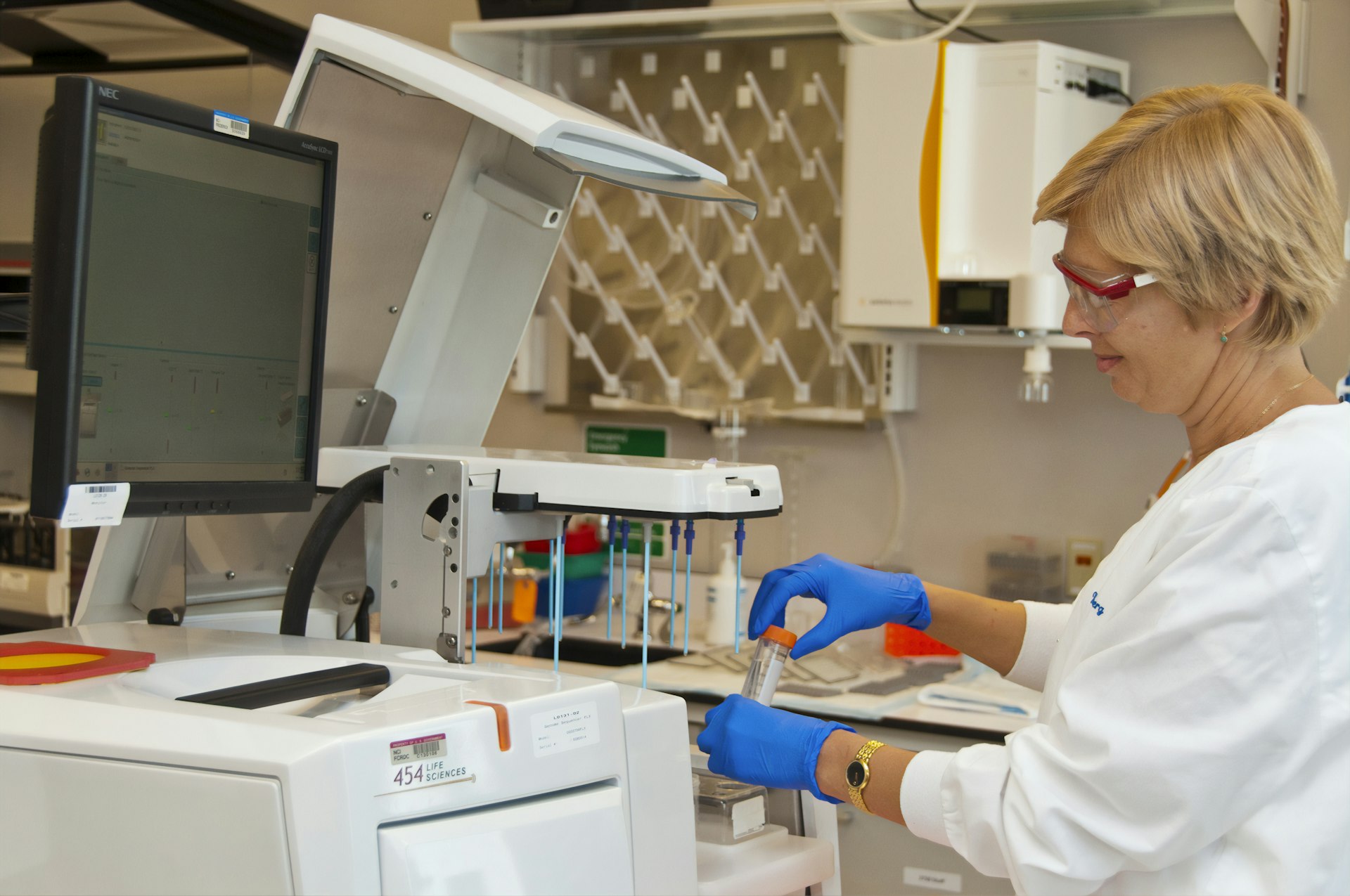How Your Gut Microbiome Shapes Whole-Body Health: Science, Strategies, and Access

Photo by Fiona on Unsplash
Introduction: Why the Gut Microbiome Matters for Your Health
The collection of microorganisms living in your digestive tract-known as the gut microbiome -is now recognized as a central player in overall human health. Scientists have linked the gut microbiome to digestion, immunity, heart and brain health, and even the risk of chronic diseases such as diabetes, obesity, and cancer. Understanding how your gut microbiome affects your health, and learning how to support a balanced microbial community, can empower you to take actionable steps toward lifelong wellness. [5]

Photo by CDC on Unsplash
The Gut Microbiome: What It Is and How It Functions
Your gut microbiome consists of trillions of bacteria, viruses, fungi, and other microbes that live primarily in your intestines. Each individual’s microbiome is unique, shaped by genetics, diet, environment, and lifestyle. These microbes help break down complex carbohydrates, synthesize vitamins, produce short-chain fatty acids, and play a crucial role in nutrient extraction and metabolism. [5]
For example, certain bacteria ferment dietary fiber to produce short-chain fatty acids such as butyrate, which supports colon health and regulates inflammation in the gut. [3] The gut microbiome also influences the biosynthesis of essential nutrients, including some B vitamins and vitamin K. [5]
Impact on Immunity and Disease Prevention
A healthy gut microbiome is essential for the development and function of your immune system. Microbial diversity helps your body distinguish between harmless and harmful invaders, reducing the risk of autoimmune conditions and allergies. Imbalances, known as
dysbiosis
, are associated with increased susceptibility to infections and the development of chronic inflammatory diseases.
[1]
Research shows that early development of the gut microbiota is crucial in preventing autoimmune disorders and supporting proper immune functioning. For instance, children with disrupted microbiota may have a higher risk of developing type 1 diabetes and allergies. [1]
Gut Microbiome & Chronic Disease Risk
Compelling evidence links gut microbiome composition to several chronic diseases:
- Obesity and Metabolic Syndrome : Imbalances in gut bacteria are associated with increased risk of obesity and metabolic disorders. Changes in bacterial populations can influence how your body extracts energy from food and stores fat. [4]
-
Heart Health
: Some gut bacteria produce chemicals like trimethylamine N-oxide (TMAO), which may increase the risk of blocked arteries, heart attack, or stroke. Conversely, beneficial bacteria like
Lactobacilli
may help lower cholesterol. [2] - Diabetes : The gut microbiome helps regulate blood sugar levels and may affect the onset of both type 1 and type 2 diabetes. [2]
- Cancer : Some bacteria may promote inflammation or produce toxins that increase cancer risk, while others have protective effects, such as producing butyrate that supports healthy colon cells. [3]
- Mental Health : The gut-brain axis highlights the connection between gut microbes and mood, cognition, and neurological health. Dysbiosis has been linked to anxiety, depression, and neurodevelopmental disorders. [4]
Diet, Lifestyle, and the Microbiome: Practical Ways to Support Gut Health
Dietary habits have a profound and immediate impact on the composition and diversity of your gut microbiome. To foster a robust and resilient microbial community, consider these evidence-based approaches:
1. Eat a Variety of Fiber-Rich Foods
Whole grains, legumes, fruits, and vegetables provide prebiotic fibers that feed beneficial gut bacteria. Increasing dietary fiber intake has been shown to promote microbial diversity and the abundance of health-supporting species. [4]
2. Include Fermented Foods
Yogurt, kefir, sauerkraut, kimchi, and other fermented foods introduce live probiotics, potentially enriching the microbiome and supporting digestive health. [4]
3. Limit Ultra-Processed Foods and Excessive Antibiotics
Highly processed foods, artificial sweeteners, and frequent antibiotic use can disrupt the balance of your gut microbes, leading to dysbiosis and increased disease risk. [4]
4. Probiotics and Prebiotics: Supplementation
Probiotic supplements containing strains like
Lactobacillus
and
Bifidobacterium
may offer benefits for some individuals, especially for digestive issues or after antibiotic use. Prebiotic supplements can help nourish healthy bacteria. However, responses vary, and it’s best to consult a healthcare professional to determine the most appropriate approach for your needs.
[2]
5. Personalized Approaches
Since each person’s gut microbiome is unique, responses to dietary changes and interventions can differ. Some clinics and research centers offer gut microbiome testing and personalized nutrition plans. For those interested, you can ask your healthcare provider about reputable testing options or search for academic medical centers with microbiome research programs.
Accessing Services, Resources, and Expert Guidance
If you’re interested in optimizing your gut health or exploring interventions like probiotics, prebiotics, or dietary adjustments, consider these steps:
- Consult a registered dietitian or a gastroenterologist, especially if you have chronic digestive symptoms or a diagnosed condition.
- For evidence-based consumer information, you can review resources from the National Institutes of Health (NIH) and the Centers for Disease Control and Prevention (CDC) . Search for “gut microbiome health NIH” or “CDC human microbiome” for the latest updates.
- To explore microbiome testing, ask your primary care provider for referrals to reputable laboratories or university-affiliated research centers. Be cautious about commercial tests that have not been validated by independent scientific review.
- If you’re considering probiotics or prebiotic supplements, look for products that have been tested in clinical trials and are recommended by healthcare professionals. You may also search for systematic reviews on PubMed or consult the NIH Office of Dietary Supplements.
Remember, if you are seeking to address a specific health concern, it is best to work with qualified healthcare professionals who can recommend appropriate and safe interventions based on the latest research.
Challenges, Limitations, and Future Directions
While the science of the human gut microbiome is rapidly advancing, many questions remain. Researchers are still working to define what constitutes a “healthy” microbiome, as significant variation exists between individuals. It is not always clear whether changes in the microbiome are the cause or the effect of certain diseases. [1] Additionally, some findings have been inconsistent, and more large-scale clinical trials are needed to clarify the best strategies for microbiome modulation. [3]
Despite these challenges, interventions such as dietary modifications, use of prebiotics and probiotics, and emerging options like fecal microbiota transplantation are showing promise for certain conditions. Personalized approaches, taking into account an individual’s unique microbiome, may offer the most effective path forward. [3]
Key Takeaways: Building a Healthier Future Through Gut Health
The gut microbiome is a powerful influence on your health, affecting digestion, immunity, metabolic function, and more. By prioritizing a diverse, fiber-rich diet and making informed choices about prebiotics and probiotics, you can help maintain a balanced microbial ecosystem. For those seeking advanced interventions, professional guidance and reputable medical resources are essential to ensure safety and effectiveness. As research evolves, expect new insights and more personalized strategies to become available. Stay informed and proactive in caring for your gut health, and consult expert resources for up-to-date guidance.
References
- Frontiers in Microbiology (2022). Human gut microbiota in health and disease: Unveiling the impact on immune function and chronic disease.
- Healthline (2022). How Does Your Gut Microbiome Impact Your Overall Health?
- National Institutes of Health (2015). Impacts of Gut Bacteria on Human Health and Diseases.
- National Institutes of Health (2019). Gut Microbiome: Profound Implications for Diet and Disease.
- Nature Reviews (2022). Microbiota in health and diseases.
MORE FROM cheerdeal.com













